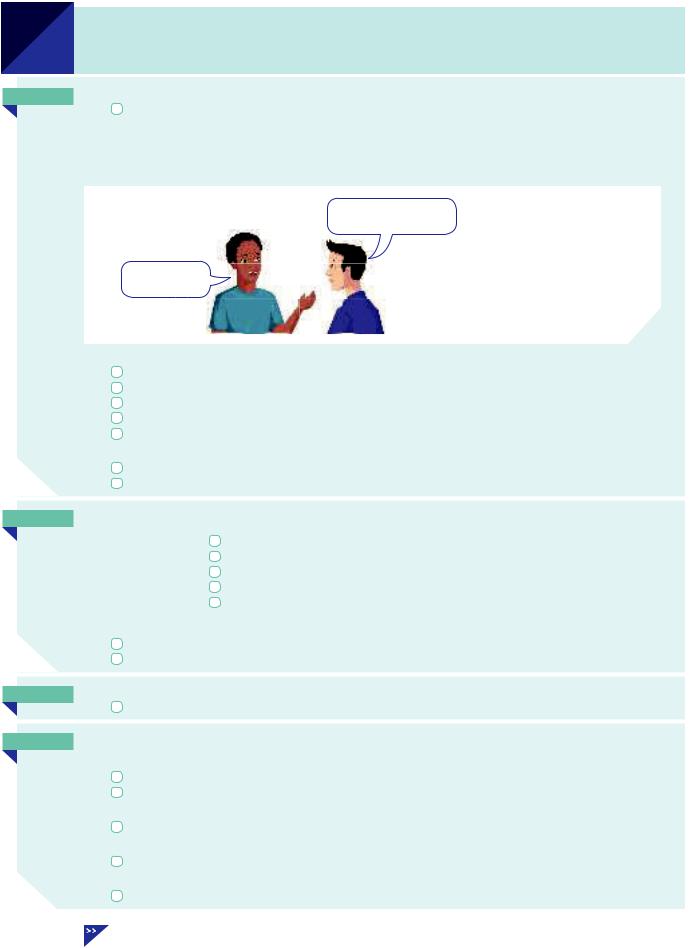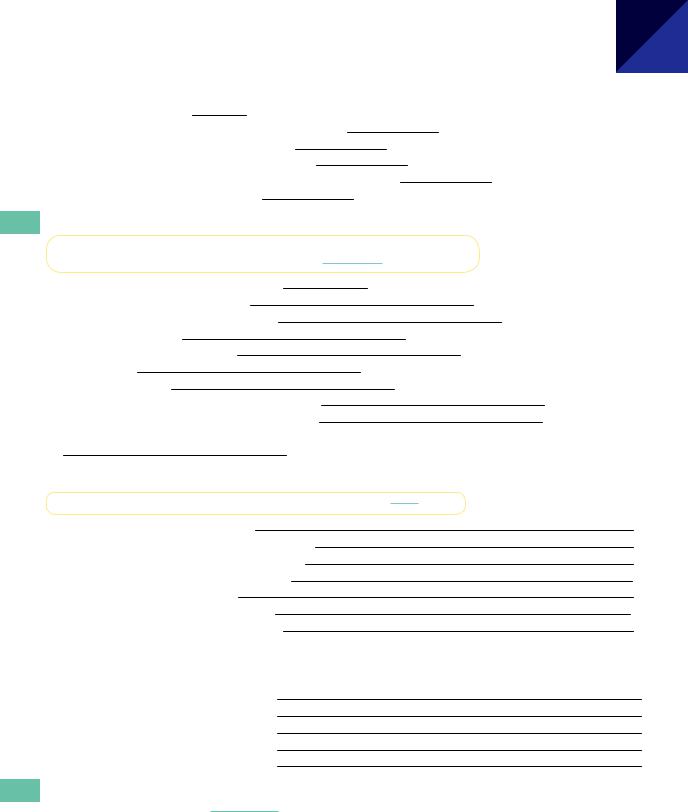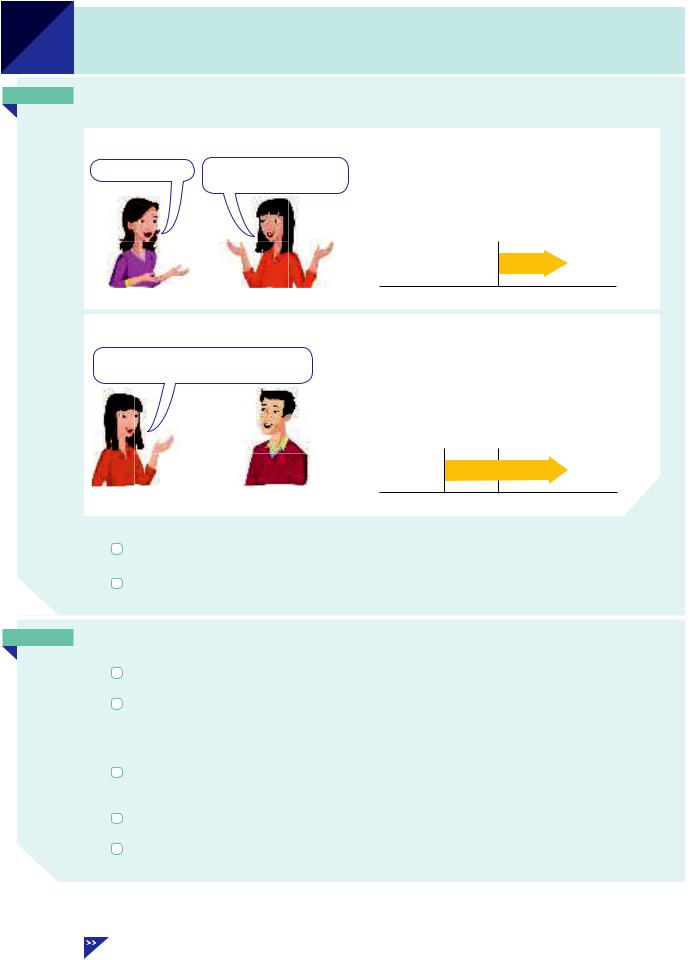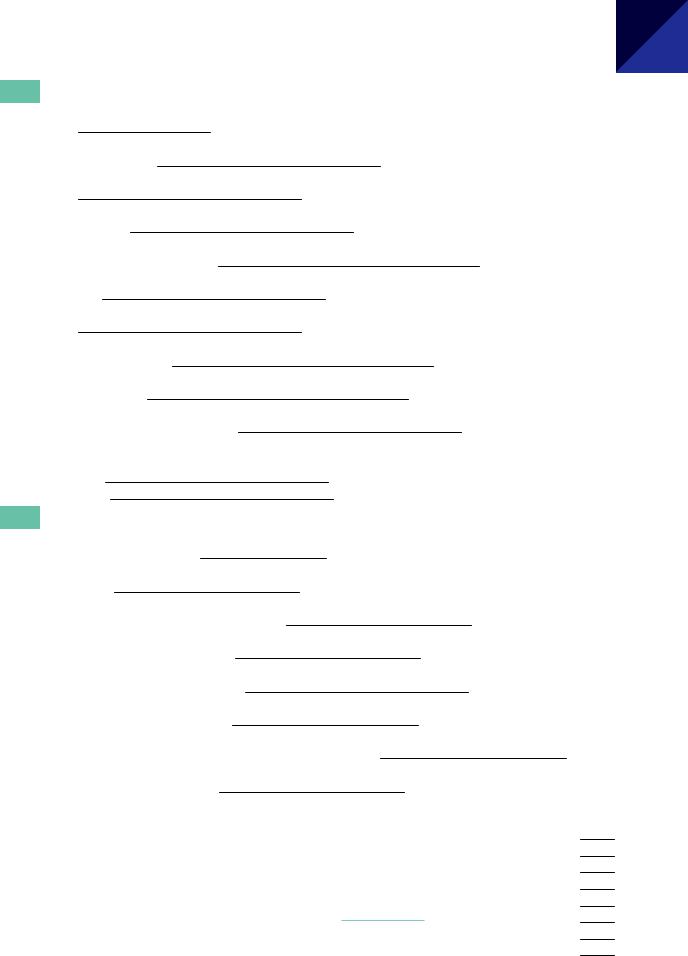
- •Contents
- •Thanks
- •To the student
- •To the teacher
- •3 Present continuous and present simple 1 (I am doing and I do)
- •10 Present perfect continuous and simple (I have been doing and I have done)
- •11 how long have you (been) … ?
- •12 for and since when … ? and how long … ?
- •13 Present perfect and past 1 (I have done and I did)
- •14 Present perfect and past 2 (I have done and I did)
- •15 Past perfect (I had done)
- •16 Past perfect continuous (I had been doing)
- •17 have and have got
- •18 used to (do)
- •19 Present tenses (I am doing / I do) for the future
- •20 I’m going to (do)
- •21 will and shall 1
- •22 will and shall 2
- •23 I will and I’m going to
- •24 will be doing and will have done
- •26 can, could and (be) able to
- •27 could (do) and could have (done)
- •28 must and can’t
- •29 may and might 1
- •30 may and might 2
- •31 have to and must
- •32 must mustn’t needn’t
- •33 should 1
- •34 should 2
- •35 I’d better … it’s time …
- •36 would
- •39 if I knew … I wish I knew …
- •40 if I had known … I wish I had known …
- •41 wish
- •42 Passive 1 (is done / was done)
- •43 Passive 2 (be done / been done / being done)
- •44 Passive 3
- •45 it is said that … he is said to … he is supposed to …
- •46 have something done
- •47 Reported speech 1 (he said that …)
- •48 Reported speech 2
- •49 Questions 1
- •52 Question tags (do you? isn’t it? etc.)
- •53 Verb + -ing (enjoy doing / stop doing etc.)
- •54 Verb + to … (decide to … / forget to … etc.)
- •55 Verb (+ object) + to … (I want you to …)
- •56 Verb + -ing or to … 1 (remember, regret etc.)
- •57 Verb + -ing or to … 2 (try, need, help)
- •58 Verb + -ing or to … 3 (like / would like etc.)
- •59 prefer and would rather
- •60 Preposition (in/for/about etc.) + -ing
- •61 be/get used to … (I’m used to …)
- •63 there’s no point in -ing, it’s worth -ing etc.
- •64 to … , for … and so that …
- •65 Adjective + to …
- •66 to … (afraid to do) and preposition + -ing (afraid of -ing)
- •67 see somebody do and see somebody doing
- •68 -ing clauses (He hurt his knee playing football.)
- •69 Countable and uncountable 1
- •70 Countable and uncountable 2
- •71 Countable nouns with a/an and some
- •74 the 2 (school / the school etc.)
- •75 the 3 (children / the children)
- •77 Names with and without the 1
- •78 Names with and without the 2
- •79 Singular and plural
- •80 Noun + noun (a bus driver / a headache)
- •81 -’s (your sister’s name) and of … (the name of the book)
- •82 myself/yourself/themselves etc.
- •83 a friend of mine my own house on my own / by myself
- •84 there … and it …
- •85 some and any
- •87 much, many, little, few, a lot, plenty
- •90 all every whole
- •91 each and every
- •92 Relative clauses 1: clauses with who/that/which
- •94 Relative clauses 3: whose/whom/where
- •95 Relative clauses 4: extra information clauses (1)
- •96 Relative clauses 5: extra information clauses (2)
- •97 -ing and -ed clauses (the woman talking to Tom, the boy injured in the accident)
- •98 Adjectives ending in -ing and -ed (boring/bored etc.)
- •99 Adjectives: a nice new house, you look tired
- •100 Adjectives and adverbs 1 (quick/quickly)
- •102 so and such
- •104 quite, pretty, rather and fairly
- •105 Comparative 1 (cheaper, more expensive etc.)
- •106 Comparative 2 (much better / any better etc.)
- •107 Comparative 3 (as … as / than)
- •108 Superlative (the longest / the most enjoyable etc.)
- •109 Word order 1: verb + object; place and time
- •110 Word order 2: adverbs with the verb
- •111 still any more yet already
- •112 even
- •114 in case
- •116 as (as I walked … / as I was … etc.)
- •117 like and as
- •119 during for while
- •121 at/on/in (time)
- •122 on time and in time at the end and in the end
- •123 in/at/on (position) 1
- •124 in/at/on (position) 2
- •125 in/at/on (position) 3
- •126 to, at, in and into
- •127 in/on/at (other uses)
- •129 Noun + preposition (reason for, cause of etc.)
- •130 Adjective + preposition 1
- •131 Adjective + preposition 2
- •132 Verb + preposition 1 to and at
- •134 Verb + preposition 3 about and of
- •135 Verb + preposition 4 of/for/from/on
- •136 Verb + preposition 5 in/into/with/to/on
- •137 Phrasal verbs 1 Introduction
- •138 Phrasal verbs 2 in/out
- •139 Phrasal verbs 3 out
- •142 Phrasal verbs 6 up/down
- •143 Phrasal verbs 7 up (1)
- •144 Phrasal verbs 8 up (2)
- •145 Phrasal verbs 9 away/back
- •Additional exercises
- •Study guide
- •Key to Exercises
- •Key to Additional exercises (see page 302)
- •Key to Study guide
- •Index

Unit
22 will and shall 2
AWe do not use will to say what somebody has already arranged or decided to do:
Lisa is working next week. (not Lisa will work)
 Are you going to watch TV this evening? (not will you watch) See Units 19–20.
Are you going to watch TV this evening? (not will you watch) See Units 19–20.
We use will to say what we know or believe about the future (not what someone has already decided). For example:
Kate has her driving test next week. Chris and Joe are talking about it.
Do you think
Kate will pass?
Yes, she’s a good driver. She’ll pass easily.
Joe believes that Kate will pass the driving test.
He is predicting the future.
When we predict a future happening or situation, we use will/won’t.
CHRIS JOE
Some more examples:
They’ve been away a long time. When they return, they’ll find a lot of changes here.
‘Where will you be this time next year?’ ‘I’ll be in Japan.’
That plate is hot. If you touch it, you’ll burn yourself.
Anna looks completely diferent now. You won’t recognise her.
When will you get your exam results?
Compare:
I think James is going to the party on Friday. (= I think he has already decided to go) I think James will go to the party on Friday. (= I think he will decide to go)
BWe oten use will (’ll) with:
probably |
I’ll probably be home late tonight. |
I’m sure |
Don’t worry about the exam. I’m sure you’ll pass. |
I think |
Do you think Sarah will like the present we bought her? |
I don’t think |
I don’t think the exam will be very dif icult. |
I wonder |
I wonder what will happen. |
|
|
Ater I hope, we generally use the present:
I hope Kate passes the driving test.
I hope it doesn’t rain tomorrow.
CGenerally we use will to talk about the future, but sometimes we use will to talk about now:
Don’t phone Amy now. She’ll be busy. (= she’ll be busy now)
DNormally we use shall only with I and we. You can say:
I shall or I will (I’ll) we shall or we will (we’ll)
I shall be late this evening. (or I will be)
We shall probably go to France in June. (or We will probably go)
In spoken English we normally use I’ll and we’ll:
We’ll probably go to France.
The negative of shall is shall not or shan’t:
I shan’t be here tomorrow. (or I won’t be)
We do not normally use shall with he/she/it/you/they:
She will be very angry. (not She shall be)
|
will and shall 1 Unit 21 |
I will and I’m going to Unit 23 will be doing and will have done Unit 24 |
44 |
will have to Unit 31A |
The future Appendix 3 American English Appendix 7 |

Exercises
22.1 |
Put in will (’ll) or won’t. |
|
|
|
1 |
Can you wait for me? I won’t be long. |
|
|
|
2 |
There’s no point in asking Amanda for advice. She |
|
know what to do. |
|
3 |
I’m glad I’m meeting Emma tomorrow. It |
be good to see her again. |
||
4 |
I’m sorry about what happened yesterday. It |
|
happen again. |
|
5 |
You don’t need to take an umbrella with you. I don’t think it |
rain. |
||
6 |
I’ve got some incredible news! You |
believe it. |
||
22.2 Complete the sentences using will (’ll). Choose from the following:
|
it/be |
she/come |
you/get |
you/like |
you/enjoy |
|
people/live |
it/look |
we/meet |
you/pass |
she/mind |
1 |
Don’t worry about your exam. I’m sure you’ll |
pass . |
|
||
2 |
Why don’t you try on this jacket? |
|
nice on you. |
||
3 |
You must meet Max sometime. I think |
|
him. |
||
4 |
It’s a very nice hotel. |
|
|
your stay there. |
|
5 |
It’s raining hard. Don’t go out. |
|
|
very wet. |
|
6 |
Do you think |
|
|
longer in the future? |
|
7 |
Goodbye! I’m sure |
|
|
again before long. |
|
8 |
I’ve invited Anna to the party, but I don’t think |
|
. |
||
9 |
You can borrow Amy’s umbrella. I don’t think |
|
. |
||
10 |
It takes me an hour to get to work at the moment. When the new road is finished, |
||||
|
|
|
much quicker. |
|
|
Unit
22
22.3 |
Write questions using do you think … will … ? + the following: |
|
|||||||||
|
|
be back |
cost |
end |
get married |
happen |
|
like |
|
rain |
|
1 |
I’ve bought this picture for Karen. |
Do you |
think she’ll |
like it |
? |
||||||
2 |
The weather doesn’t look very good. Do you |
|
|
|
? |
||||||
3 |
The meeting is still going on. When do you |
|
|
|
|
? |
|||||
4 |
My car needs to be repaired. How much |
|
|
|
|
? |
|||||
5 |
Sally and David are in love. Do |
|
|
|
|
|
|
? |
|||
6 |
‘I’m going out now.’ |
‘OK. What time |
|
|
|
|
?’ |
||||
7 |
The future situation is uncertain. What |
|
|
|
|
? |
|||||
|
|||||||||||
22.4 |
Where do you think you will be at these times? Write sentences about yourself. Use: |
||||||||||
|
I’ll be … |
or I’ll probably be … |
or I don’t know where … |
|
|||||||
1 |
(next Monday evening at 7.45) |
|
I’ll |
probably be |
at home. |
||||||
2 |
(at 3 am tomorrow) |
|
|
|
|
|
|
|
|
||
3(at 10.30 tomorrow morning) 4 (next Friday aternoon at 4.15) 5 (this time next year)
22.5Which is better in these sentences?
1 Lisa isn’t free on Saturday. She’ll work / She’s working. (She’s working is correct) 2 It was an amazing experience. I never forget it. / I’ll never forget it.
3Something very funny happened. You’re laughing / You’ll laugh when I tell you about it. 4 I’ll go / I’m going to a party tomorrow night. Would you like to come too?
5 Who do you think will win / is winning the game tomorrow?
6 I can’t meet you this evening. A friend of mine will come / is coming to see me. 7 Don’t be afraid of the dog. It won’t hurt / It isn’t hurting you.
8 What’s happening / What will happen if I press this button? 9 a: Have you decided where to go for your holidays?
b:Yes, we’ll go / we’re going to Italy.
Additional exercises 10–13 (pages 308–10) |
45 |

Unit
23 I will and I’m going to
AFuture actions
Compare will and (be) going to:
Sarah is talking to Helen:
Let’s have a party. |
That’s a great idea. |
|
We’ll invite lots of people. |
||
|
SARAH |
HELEN |
will (We’ll invite …)
We use will (We’ll invite …) to announce a new decision. The party is a new idea.
decision now
We’ll …
past |
now |
future |
Later that day, Helen meets Max:
Sarah and I have decided to have a party. We’re going to invite lots of people.
HELEN |
MAX |
(be) going to (We’re going to invite …)
We use (be) going to when we have already decided to do something.
Helen had already decided to invite lots of people before she spoke to Max.
decision before
We’re going to …
past |
now |
future |
Compare: |
|
|
‘Gary has been trying to contact you.’ |
‘Has he? OK, I’ll call him.’ |
|
‘Gary has been trying to contact you.’ |
‘Yes, I know. I’m going to call him.’ |
|
‘Anna is in hospital.’ |
‘Really? I didn’t know. I’ll go and visit her.’ |
|
‘Anna is in hospital.’ |
‘Yes, I know. I’m going to visit her this evening.’ |
|
BFuture happenings and situations (predicting the future)
We use both will and going to for future happenings and situations. So you can say:
I think the weather will be nice later. or
I think the weather is going to be nice later.
Those shoes are well-made. They’ll last a long time. or Those shoes are well-made. They’re going to last a long time.
When we say something is going to happen, we believe this because of the situation now. What is happening now shows that something is going to happen in the future. For example:
Look at those black clouds. It’s going to rain. (not it will rain)
(we can see that it is going to rain – the black clouds are in the sky now) Compare:
We’re going to be late. The meeting starts in five minutes and it takes 15 minutes to get there. (it is clear now that we don’t have enough time to get there)
Jane will be late for the meeting. She’s always late. (I believe this because I know what Jane is like)
46 |
I’m going to Unit 20 will Units 21–22 The future Appendix 3 |

Exercises
23.1 Complete the sentences using will (’ll) or (be) going to.
1 |
a: Why are you turning on the TV? |
|
|
b: I’m going to watch the news. (I / watch) |
|
2 |
a: I forgot my wallet. I don’t have any money. |
|
|
b: Not to worry. |
you some. (I / lend) |
3 |
a: Why are you filling that bucket with water? |
|
|
b: |
the car. (I / wash) |
4 |
a: I don’t know how to use the washing machine. |
|
|
b: It’s easy. |
you. (I / show) |
5 |
a: I’ve decided to paint this room. |
|
|
b: That’s nice. What colour |
it? (you / paint) |
6 |
a: Where are you going? Are you going shopping? |
|
|
b: Yes, |
some things for dinner tonight. (I / buy) |
7 |
a: What would you like to eat? |
|
|
b: |
a pizza, please. (I / have) |
8 |
a: This food doesn’t taste very good, does it? |
|
|
b: No, it’s horrible. |
it. (I / not / finish) |
9 |
a: Tom is starting an evening class next month. |
|
|
b: Is he? What |
? (he / study) |
10 |
a: Did you call Lisa? |
|
|
b: Oh, no. I completely forgot. |
her now. (I / call) |
11a: Has Dan decided what to do when he leaves school?
b:Yes. Everything is planned.
First
Then
23.2 Read the situations and complete the sentences using will (’ll) or (be) going to.
Unit
23
1 |
You want some cofee. You go to the kitchen to make some. |
|
|
|
You say (to your friend): |
I’m going to make some cofee. Would you like some? |
|
2 |
You’re speaking to a friend and arranging to meet. You suggest a time and place. |
||
|
You say: |
you at 10.30 in the hotel lobby, OK? (I/see) |
|
3 |
You have decided to sell your car. You tell a friend of yours. |
|
|
|
You say: I don’t need my car any more. |
it. (I/sell) |
|
4 |
Your friend is worried because she has lost her driving licence. |
|
|
|
You say: Don’t worry. I’m sure |
it. (you/find) |
|
5a |
You have an old camera that is broken. You have decided to throw it away. You tell your friend. |
||
|
You say: This camera is broken. |
it away. (I/throw) |
|
5b |
Your friend loves and collects old cameras. He doesn’t want you to throw it away. |
||
|
He says: Don’t throw it away! |
it. (I/have) |
|
6a |
Joe has to go to the airport tomorrow. He doesn’t know how to get there. Amy ofers to take him. |
||
|
Amy says: Don’t worry about getting to the airport, Joe. |
you. (I/take) |
|
6b |
Later that day, Paul ofers to take Joe to the airport. Joe tells him that it’s not necessary. |
||
|
Joe says: Thanks, Paul, but |
me. (Amy/take) |
|
23.3 |
Which goes with which? |
|
|
|
|
|
|
1 |
|
|
|
|
1 |
f |
|
Why don’t you come to the party with us? |
|
a |
He’ll get what he wants. |
||||
2 |
That ceiling looks dangerous. |
|
b |
He probably won’t remember me. |
2 |
|
|
3 |
He’s looking very tired. |
|
c |
It’s going to be a nice day. |
3 |
|
|
4 |
This table is too big. |
|
d |
It looks as if it’s going to fall down. |
4 |
|
|
5 |
The weather forecast is good. |
|
e |
It’s going to be 200 metres high. |
5 |
|
|
6 |
Jack is very determined. |
|
f |
You’ll enjoy it. |
6 |
|
|
7 |
They are building a new skyscraper here. |
|
g |
I don’t think it will fit in the room. |
7 |
|
|
8 |
I haven’t seen Ben for ages. |
|
h |
I think he’s going to fall asleep. |
8 |
|
|
|
|
|
|
|
|
|
|
Additional exercises 10–13 (pages 308–10) |
47 |
